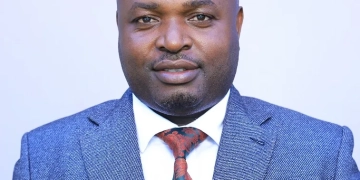
KAMPALA – Stanbic Bank, the anchor subsidiary of Stanbic Uganda Holdings Limited (SUHL), hosted an inaugural financial literacy session recently for senior administrators of primary, secondary, and vocational schools in the Kampala Metropolitan Area.
The event took place at Hotel Africana, in partnership with Opportunity International, and brought together school directors, head teachers, and bursars for a comprehensive six-hour mentorship program.
The participants explored critical topics, including risk management, taxation, financial planning, business continuity, and school governance.
Among the attendees was Hajji Ibrahim Ssemakadde, Head Teacher of Kibuli Muslim Secondary School, who praised Stanbic Bank for this timely intervention. “Many schools struggle with financial management, often relying on limited fee collections to sustain operations. This training has opened our eyes to better budgeting, cost-saving strategies, and even investment opportunities for long-term stability,” he said.
Commitment to Socio-Economic Growth
Paul Muganwa, Executive Director and Head of Corporate Investment Banking at Stanbic Bank, highlighted the bank’s commitment to Uganda’s socio-economic transformation.
“At Stanbic, our purpose is clear: ‘Uganda is our home, and we drive her growth’. Extending this initiative to the education sector is vital, because no institution can thrive without sound financial knowledge and management skills,” he said.
Muganwa said education is the cornerstone of development, and praised administrators of the sector for their resilience amid challenges like the Covid-19 pandemic. He reaffirmed Stanbic’s commitment to supporting schools through financial assistance and capacity-building programs.
Olga Priscilla Biribonwa, Stanbic Bank’s Head of Public Sector, said the bank to date has trained over one million professionals in recent years, with nearly 500,000 gaining financial literacy skills. Beneficiaries of these initiatives include SACCOs, VSLAs, and professionals from various public sectors such as the military and prison services as well as the clergy.
She reiterated Stanbic’s focus on tailored services for the education ecosystem, with similar engagements planned nationwide throughout the year. “Stanbic Bank is not just a financial institution; it’s a true partner in Uganda’s educational growth. That’s why we are expanding these training sessions across the country so that no one is left behind,” she said.
Government Applauds Initiative
Harriet Ssenkali, Acting Commissioner for Private Schools at the Ministry of Education and Sports, commended Stanbic Bank for its inclusive approach. “Financial management is key to institutional growth. I urge school leaders to embrace such programs because, without knowledge, scaling up is impossible,” she said.
Ssenkali acknowledged the financial struggles of private institutions, particularly their reliance on tuition fees and high operational costs, emphasizing the urgency of this initiative. “This training is crucial. I encourage all participants to take it seriously and to use this opportunity to share experiences. Together, we can develop solutions for effective school management,” she said.
Ssenkali said ,“The Ministry has observed significant challenges in financial management across institutions, which impact our mission to provide quality and affordable education for all. I commend Stanbic Bank and Opportunity International for this vital initiative.”
Dr. Johnson Byabashaija, the Commissioner General of Prisons, described the financial literacy session as a precious opportunity that has significantly enhanced the financial well-being of prison officers. He urged the bank to enhance its support for prison-based SACCOs and VSLAs to improve income security.
The partnership between the Uganda Prisons Service and Stanbic Bank has already yielded impressive results. Over the past decade, the bank has trained more than 54,000 prison officers and their spouses across 19 regions in financial literacy, empowering them to make informed financial decisions.
The programs cover managing multiple loans, navigating financial burdens from extended families, handling financial challenges due to redundancy, as well as prioritizing essential expenditures on a limited government salary.
Driving Sustainable Education
Melisa Nyakwera, Stanbic Bank’s Head of Commercial Banking, stressed that the initiative aligns with Uganda’s sustainable development goals.
“Education is critical for poverty reduction and economic growth. If we don’t invest in empowering educators, we cannot expect progress,” she said.
Nyakwera said the bank has refined its customer value proposition to better support schools, addressing pertinent issues such as expansion opportunities and cost efficiency.
She said, “As a bank, we are committed to providing solutions for the education sector and its unique needs. To that end, we are revamping our customer value proposition specifically for this sector, allowing us to effectively address your requirements. We understand that your needs include expanding your facilities, reducing transport and energy costs, and bridging working capital gaps.”
Speaking to the leaders, Dogo Singh, the Head of Insurance at Stanbic Bank urged school leaders to integrate insurance as a vital element of their institutional management practices.
He emphasized the importance of proactive risk management in educational settings, stating, “By adopting comprehensive insurance policies, schools can safeguard their assets and ensure the safety of their students and staff. It is imperative that we view insurance as a fundamental pillar that supports the overall health and sustainability of our educational
institutions.”










Discussion about this post